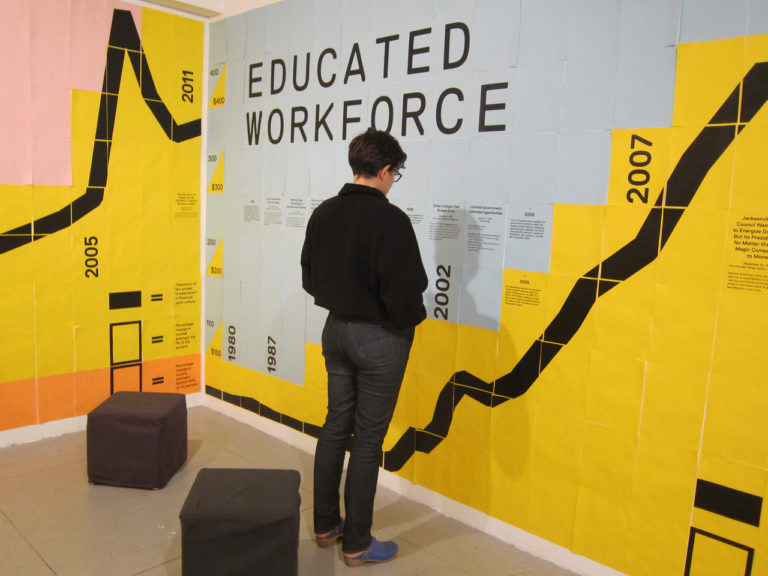Lynn Mie Itagaki contributes to cultural and comparative race studies by uncovering the implications of what she calls the 1992 Los Angeles Rebellion—a constellation of events spurned on by the Rodney King verdict—for intersecting groups and communities including women, immigrants, Black, Asians, and Latina/o-Americans. Each chapter provides a different context (family, education, neighborhood) for structures and discourses that perpetuate civil racism, while at the same time illuminating specific acts of resistance and subversion that occur, in each instance, through media, activism, and art. Itagaki’s methodology moves beyond critical literary analysis to provide important social commentary and critique that will prove useful to interdisciplinary scholars seeking to learn about racial formations in the neoliberal U.S. context.
Issues
Review of Reality Bites: Rhetoric and the Circulation of Truth Claims in US Political Culture by Dana Cloud (Ohio State University Press)
Dana Cloud’s marvelous new book provides just the sort of deep understanding and practical guidance needed for thoughtful and effective political engagement in the Trump era. In three fascinating case studies, Cloud demonstrates the impotence of naked facts and the power of mediation. First, she compares the cases of Chelsea Manning and Edward Snowden, both of whom leaked classified information in acts of patriotic resistance. Second, in a chapter on the 2014 television series Cosmos, Cloud seeks to explain the show’s enormous rhetorical power. Third, Cloud compares the revolutionary rhetoric of Thomas Paine’s Common Sense to that of the Black Lives Matter and Occupy movements. As we live through the devastation wrought by a Trump presidency, as we seek to make sense of it all in our scholarship and our classrooms, as we resist his attempt to reengineer of reality and search for ways to reassert our own reality, the reality of the people, Reality Bites comes not a moment too soon.
Review of The Social Life of Financial Derivatives: Markets, Risk, and Time by Edward LiPuma (Duke University Press)
Edward LiPuma outlines a sociohistorical theory of the market that positions derivatives trading as initiating a new form of capitalism. The book also confronts the narratives that the financial sector tells itself about the causes and aftermath of the financial crisis, revealing the social relations that underpin the entire enterprise. LiPuma exposes the wild-seeming speculation of hedge fund managers and traders as a rationale that disappears the social aspect of its own ritual induction and relational mode of production and reproduction. An understanding of the social underpinning of financial markets, LiPuma hopes, can lead to a politics of “just optionality” where the same methods for betting on securitized commodities (assets made liquid) like housing mortgages can be transferred into wagers that further the collective good. For Marxists, LiPuma has an urgent message: existing theories of the market are incomplete without an understanding of how financial capital, led by derivatives trading, has transformed the means by which capital reproduces itself.
Review of The Pink Tide: Media Access and Political Power in Latin America edited by Lee Artz (Rowman & Littlefield)
The ‘Pink Tide’ refers to the unprecedented succession of electoral victories of socialist-leaning populist presidents in the region, starting with Chavéz’s victory in 1998. This anthology explores media reforms in countries that most consistently reelected progressive candidates, specifically Venezuela, Bolivia, Ecuador, Uruguay, and Brazil. Through these case studies, Artz seeks to show that the primary indicator of democracy and social justice is the extent to which governments give the population direct access and control of the means of communication. Despite the complexities of the different cases, Artz presses that public participatory media, by promoting and prefiguring a socialist society, is an integral part of the democratic struggle that must be actively and continuously pursued by social movements.
Editors’ Introduction: Marxism and Cultural Studies
Cultural studies as a discipline and intellectual practice is deeply indebted to Marx, even as the field of cultural studies has contested, revisited, and updated Marx’s work. This issue points to a number of resonant threads currently active under the umbrella of cultural studies and opens possibilities for historical mapping of the many and varied aspects of marxist thought, in and out of the academy. The authors in this issue direct us toward and augment our understanding of the multi-faceted and inextricable links between questions of capital and questions of race, class, and gender power that have been the focus of US research in cultural studies especially within the past thirty years. In this issue, we continue and expand our editorial emphasis on the role of cultural studies in explaining and challenging the ongoing, intersectional significance of material power relations.
Decommodified Labor: Conceptualizing Work After the Wage
A way to think labor after finanancialization, decommodifed labor refers to an emptying out of the same wage relation that nonetheless continues to structure our lives. “Working hard or hardly working” needs a new conjunction: in an age of decommodifed labor, one finds oneself working hard and hardly working. I suggest that decommodified labor offers cultural critics a form for isolating labor today that takes account of its relation to the wage, that may assist in periodizing the capital-labor relation, and that also highlights financial change alongside labor’s durational necessity under capitalism.
Imagined Immunities: Abjection, Contagion and the Neoliberal Debt Economy
This paper addresses the pervasiveness of contagion as a structure of feeling by putting Maurizio Lazzarato’s biopolitics of indebtedness in dialogue with Roberto Esposito’s insight that debt is the very condition of both community and its dialectical opposite, immunity. Where Esposito does not sufficiently engage the role of financialized or neoliberal capitalism within the contemporary crisis, Lazzarato develops a Marxian account of debt that complements Esposito’s “immunitarian biopolitics,” revealing it as an intrinsically capitalist one, and allows us to ground it in contemporary power structures through Marx’s figure of M-M’.
Vital Forces: Marx and the Tension of Capitalist Affect
This article juxtaposes Marx’s critique of capitalism with recent developments in affect theory. My central argument is that a critique of the tension of capitalist affect is fundamental to a Marxian account of capital: on the one hand, capitalism amplifies the potential affective capacity of bodies through its development and organization of productive forces; on the other, it captures this increase to enrich the bourgeoisie, immiserate the proletariat, and reproduce capitalism. I also sketch the ways that an affective interpretation can provide insight into anti-capitalism resistance and post-capitalist life within Marx’s theoretical and philosophical project. Ultimately, reading Marx’s critique of capitalism for its resonances with Deleuzean-Spinozan affect theory not only generates a newfound apprehension of the affective register of that critique, but also adds to the critical repertoire of affect theory.
Marxism, Cultural Studies, and the “Principle Of Historical Specification”: On The Form of Historical Time in Conjunctural Analysis
Karl Korsch identifies in Marx’s work what he calls “the principle of historical specification,” the way in which “Marx comprehends all things social in terms of a definite historical epoch.” This work is concerned with this idea and its instantiation in contemporary social theory. With this paper I hope to show how the principle of historical specification has been interpreted within the Birmingham tradition of cultural studies, paying specific attention to (1) the form of historical time implicit in the concept of a “conjuncture,” and (2) the logic of historical periodization that follows from a “conjuncturalist” approach to historical research. I argue that a conception of plural temporality is central to the mode of historical analysis associated with the Center for Contemporary Cultural Studies.
Debord in Watts: Race and Class Antagonisms Under Spectacle
In this paper, I explore Guy Debord’s analysis of race and racializing processes by closely examining the use of footage of the Watts rebellion in Debord’s film The Society of the Spectacle (1973), along with a close reading of Debord’s 1965 text on the uprising, “The Decline and Fall of the Spectacle-Commodity Economy.” Debord’s Marxist perspective on Watts understands the insurgents as potential revolutionary actors, primed for a “second proletarian assault against class society” (SotS, Thesis 47). To complicate Debord’s position, I look at the similarities and differences between his stance and the emergent theoretical paradigm of Afropessimism, which understands anti-black violence not as contingent upon capitalist alienation but instead as gratuitous violence required to uphold the figure of Humanity within civil society.
“Who is this man who is distinct from this citizen?” Revisiting Marx’s Critique of Liberal Rights
Steven Lukes argues that Karl Marx underestimated the importance of human rights. For Lukes, Marx treated human rights only as expressions of the egoism and individualism of bourgeois society and, in doing so, underestimated both the danger of arbitrary political power and the protection afforded by individual rights. My first aim in this essay is to show four substantial problems with Lukes’ reading of “On the Jewish Question,” the text that Lukes finds to contain the “roots” of Marx’s view. My second aim is to argue that—a hundred and fifty years after the publication of Capital—a re-assessment of the marginality of rights in Marx’s thought is overdue. There is nothing in Marx’s thought that should discourage socialists from demanding such rights and this essay finds that this is not a connection between Marxism and socialism that needs severing.
The Best of All Possible Ends of the World: An Interview with Andrew Culp
Dark Deleuze (University of Minnesota Press, 2016) appears as an anomaly in English Deleuze scholarship. Andrew Culp contrasts Deleuze as a thinker of positivity who constantly demands we find “reasons to believe in this world” with a Deleuze of dark negativity. In doing so, Culp offers an alternative Deleuze in a time where powerful forces from Buzzfeed to the IDF seek to appropriate Deleuze’s thought. The Dark Deleuze speaks of destructive negativity, hatred for this world, and the shame of being human. All of these ideas are pit against “the canon of joy” that would have us relentlessly celebrate the new, affirm the present, and give in to compulsory positivity. Culp makes a powerful case that, contrary to what one might expect, it is precisely the positivity that lies at the heart of both liberal and accelerationist readings of Deleuze.
Doing What You Love in the Age of Mass Debt
This paper examines the relationship between student debt and the changing terrain of work in U.S. culture, while attending to how these shifts mark a specifically gendered, racialized phenomenon. Drawing on the AAUW’s 2017 report on student debt, this paper examines the figure of the fashion intern in order to think about how the gender and racial inequities in student debt collude with what Angela McRobbie terms ‘the feminization of work’ to effect a gendered, racialized form of indebtedness. I assert that the ‘do what you love’ ethos described by Miya Tokumitsu contributes to the proliferation of feminized work in the culture industries, such as fashion, and the perpetuation of racial exclusivity within the industry.
Review of Media and Culture in the US Jewish Labor Movement: Sweating for Democracy in the Interwar Era by Brian Dolber (Palgrave Macmillan)
Brian Dolber comprehensively explores the cultural and media-related developments of an important American social movement during its most transformative time: the varying business enterprises, community associations, party structures, and social institutions that collectively constituted ‘US Jewish labor’ in the decades between WWI and II. Dolber infuses his historical analysis with a nuance and urgency that ensures his readers will neither complacently shrug off the interwar era as limited in its relevance to our contemporary conjuncture nor nostalgically long for a supposedly romantic period of leftist political organizing in the US Indeed, a tacit takeaway drawn from Dolber’s book is that activists today (especially those experimenting with alternative media and cultural formations) can benefit greatly from both the inspiring examples of past precedence and a sober acceptance of the potential pitfalls that can threaten their efforts.
Review of In the Wake: On Blackness and Being by Christina Sharpe (Duke University Press)
Christina Sharpe’s “In the Wake: On Blackness and Being” addresses issues of citizenship, racial violence, and black mortality, meshing her personal experiences surrounding death and “the wake” with a sharp critique of cultural structures, as well as a reimagining of slavery, funeral, and death metaphors. In the wake of so many “ongoing state-sanctioned legal and extralegal murders of Black people,” Sharpe’s argument that black death is a foundational aspect of American citizenship encourages readers to acknowledge the antiblackness embedded in the past, present, and future of American (and by extension, Transatlantic) democracy (7). With the continued and encouraged proliferation of black death in the global diaspora, Sharpe’s study will, hopefully, usher in more woke scholarship that questions pervasive antiblackness.









